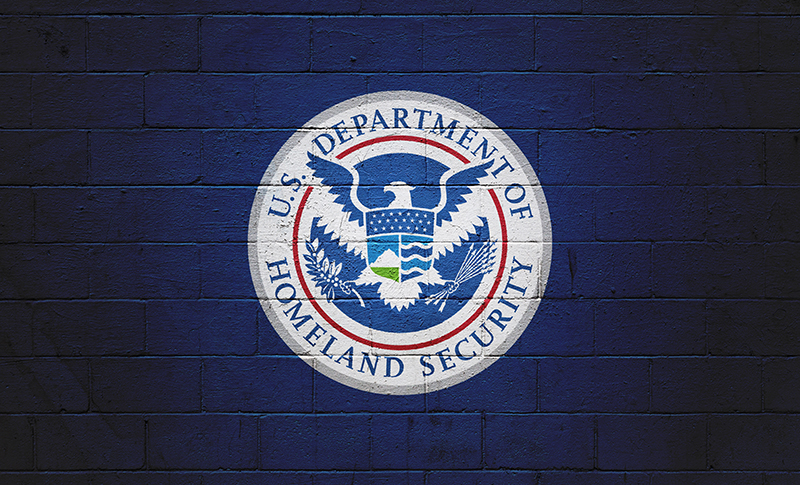
Earlier this year, I wrote a series of posts on Department of Homeland Security (DHS) regulations developed, but not finished, by the Trump administration that the Biden administration should finalize. One example is the U.S. Immigration and Customs Enforcement (ICE) proposed rule to replace “duration of status” (D/S) with fixed-time-period admission for aliens in F (student), J (exchange visitor), and I (foreign media) nonimmigrant status.
As I explained in the post in support of the D/S rule, most nonimmigrant categories are admitted for a fixed period of time. This structure is referred to as “date certain” admission because there is absolute clarity as to when the alien’s lawful immigration status expires. If permitted under the law, such aliens may remain lawfully in the United States beyond this “date certain” if they file an extension of stay or change of status request with U.S. Citizenship and Immigration Services (USCIS). By comparison, aliens in the F, J, and I nonimmigrant categories are admitted for D/S, meaning for the time the alien is pursuing study (including so-called “practical training” for F-1 foreign students), participating in authorized exchange visitor programs, or employed by a foreign media outlet.
In practice, aliens admitted into the United States on D/S are permitted to be in the country for an undefined period of time that is based on the alien’s behavior instead of terms set by the government. Unsurprisingly, the lack of check-ins with immigration officials for aliens admitted on D/S raises substantial oversight and compliance problems for DHS. ICE flagged these concerns as part of the driving rationale for ending D/S, stating in the notice of proposed rulemaking:
Admission for D/S, in general, does not afford immigration officers enough predetermined opportunities to directly verify that aliens granted such nonimmigrant statuses are engaging only in those activities their respective classifications authorize while they are in the United States. In turn, this has undermined DHS's ability to effectively enforce compliance with the statutory inadmissibility grounds related to unlawful presence and has created incentives for fraud and abuse.
Like the other Trump-era immigration regulations I covered, the D/S rule went through a public comment period as required by the Administrative Procedure Act and the final rule was drafted. Unfortunately, the D/S final rule did not receive the formal clearances and publication in the Federal Register necessary to “get it on the books” before the change in administration. With all of the hard work of the rulemaking process done, the Biden administration could have scored an early, and easy, win for immigration integrity by merely getting the D/S final rule approved and published.
Instead, Biden administration has abandoned this regulatory reform, formally titled “Establishing a Fixed Time Period of Admission and an Extension of Stay Procedure for Nonimmigrant Academic Students, Exchange Visitors, and Representatives of Foreign Information Media”. In its July 2 withdrawal notice, DHS Secretary Mayorkas justifies the decision by citing that “[m]ore than 99 percent of commenters opposed the proposed rule”. The level of opposition is unsurprising, and irrelevant, because those comments consisted of thousands of foreign students, universities, and unlimited-immigration advocacy groups who simply did not like the rule because it would do away with the special treatment afforded to aliens in F, J, and I nonimmigrant status. Without independent analysis, Mayorkas repeats the claims of these commenters that moving from D/S to “date certain” “would significantly burden” these aliens and “impose exorbitant costs and burdens”. The notice used “burden” twice, so it must be true.
The Mayorkas notice states that commenters in support of the rule “believed it would deter illegal immigration, protect U.S. workers, and stop espionage.” Biden’s DHS neither refutes these views nor the Department’s stated justified provided above about the inability to effectively ensure compliance. Instead, citing the flawed Executive Order 14012, the Biden administration says “DHS believes some of the comments [in opposition] may be justified and is concerned that the changes proposed unnecessarily impede access to immigration benefits.” (Emphasis added.) As is common with Biden administration justifications for ending Trump policies, the explanation is laced with qualifiers because they cannot identify with specificity any actual burden or impediment.
If they could, you would expect Biden’s DHS to push Congress to end “date certain” for all nonimmigrant categories as similarly being unduly burdensome. To date, there has been no public position by the Biden administration to make such a change.
By formally withdrawing the proposed rule, a future administration will have to publish a new proposed rule and go through the public comment period before finalizing the change.
